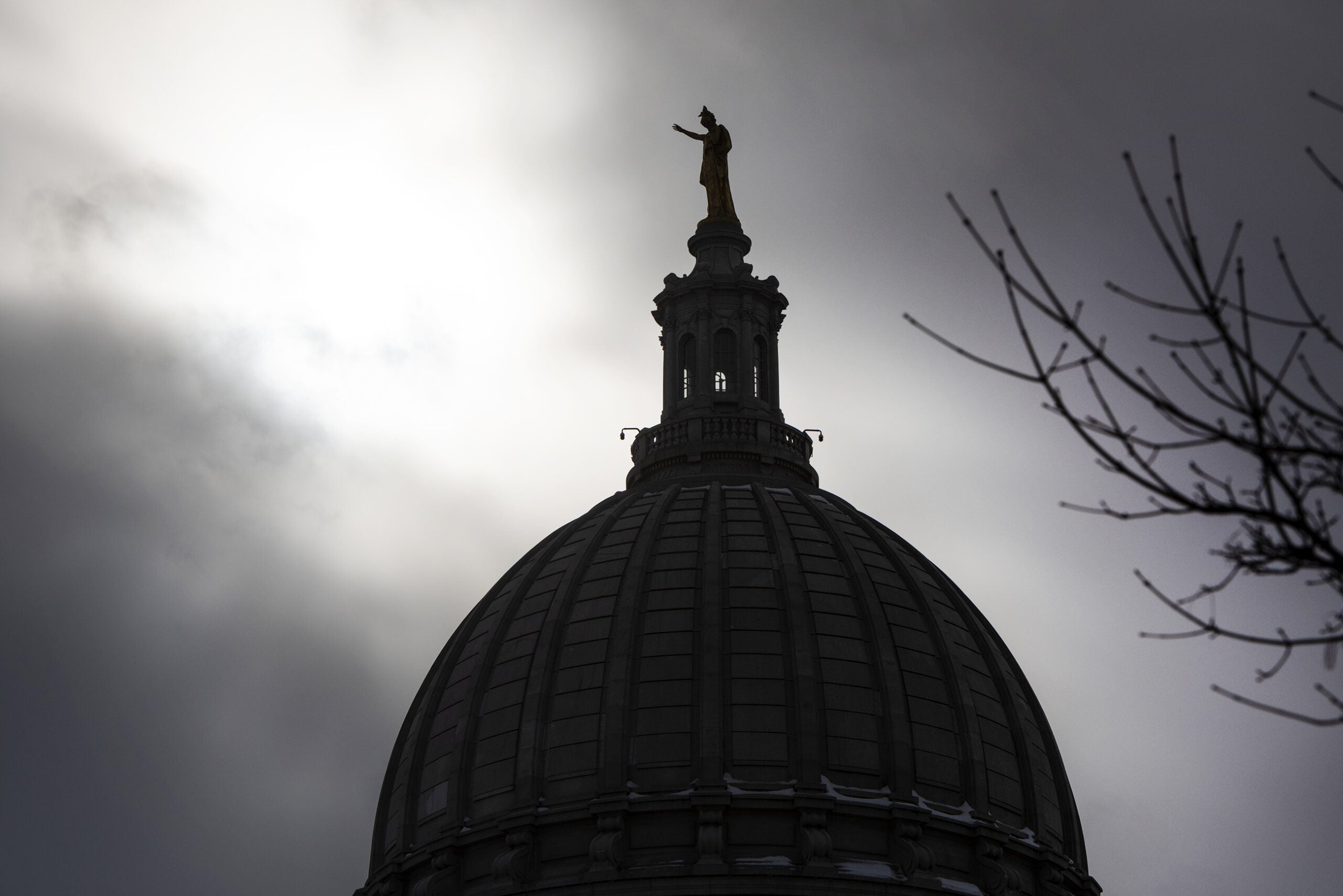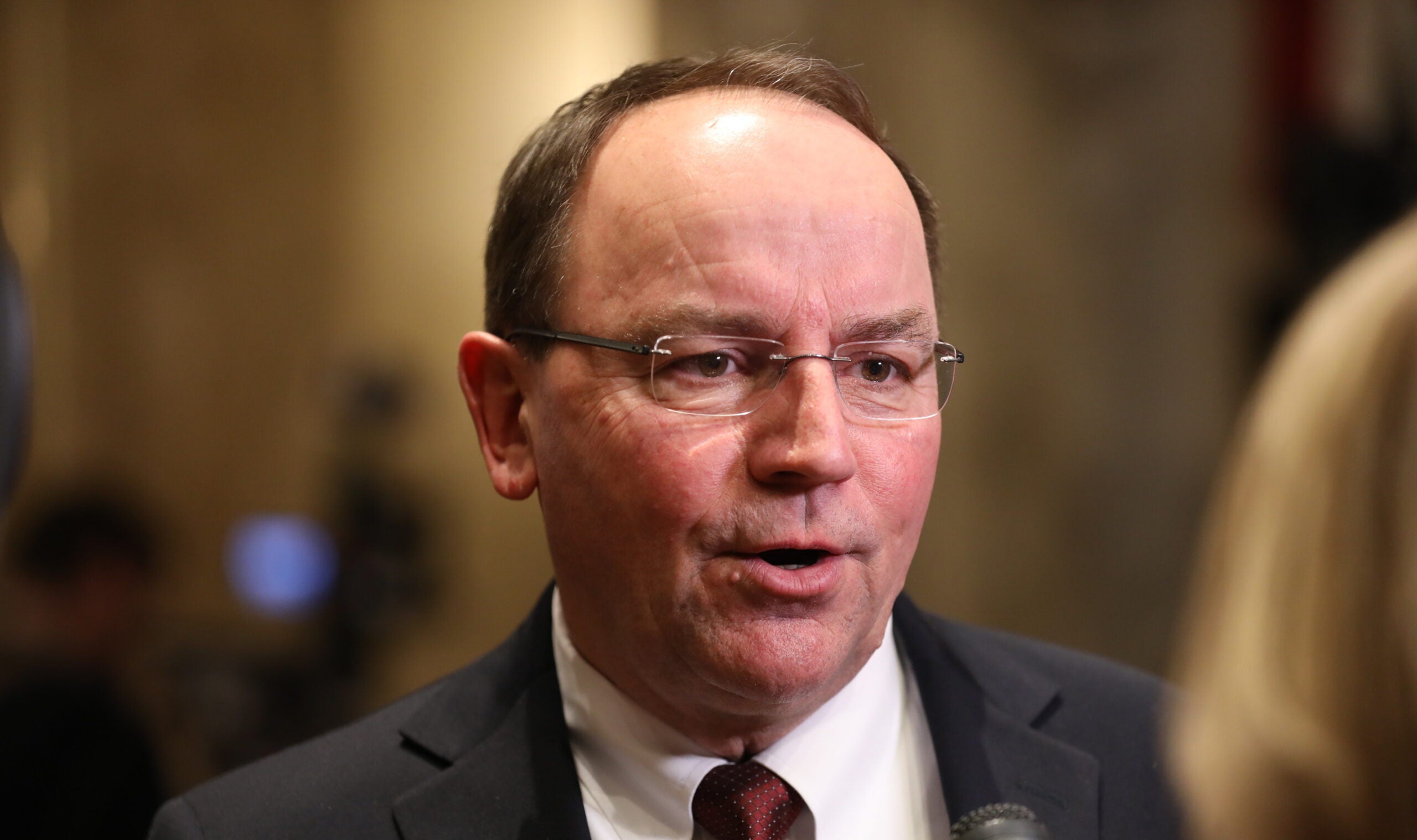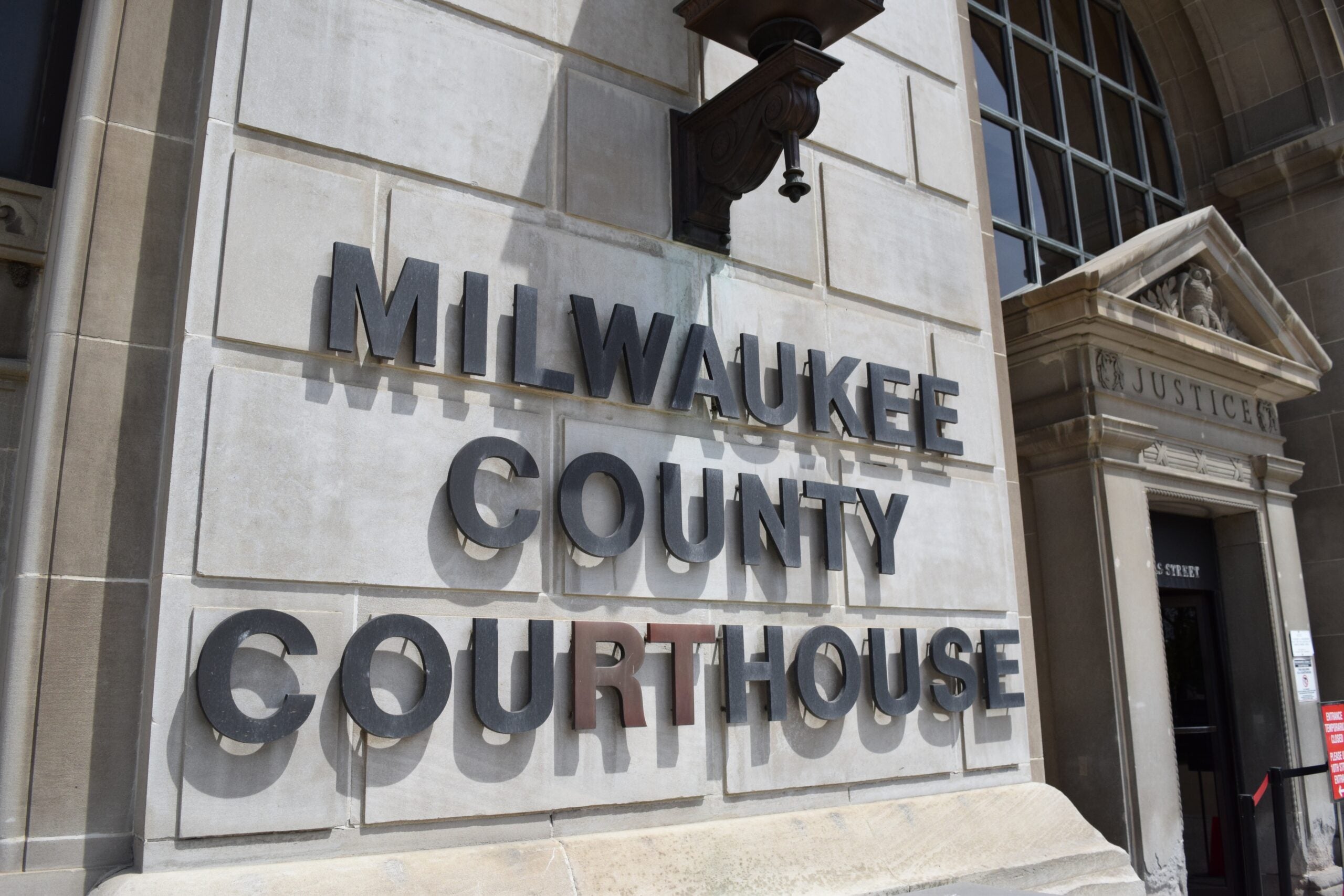A Milwaukee County jury found a former election official guilty of election fraud involving absentee ballots Wednesday afternoon.
Kimberly Zapata, the former deputy director of the Milwaukee Election Commission, was also found guilty of misconduct in public office, a felony, after she admitted to using fake names to request military absentee ballots on her work laptop in 2022. Zapata then sent those ballots to the home of Republican state Rep. Janel Brandtjen, who was promoting false theories about election fraud.
Zapata, 47, has been on trial in Milwaukee County since Monday. After deliberating for around five hours following closing arguments Wednesday morning, Zapata appeared quiet in court while Milwaukee County judge Ashley Kori read the decision of the jury.
Stay informed on the latest news
Sign up for WPR’s email newsletter.
During opening statements, prosecutors said Zapata committed fraud and violated the public’s trust. However, her defense attorney said she acted as a “whistleblower.”
As deputy director, Zapata was in charge of early voting, absentee voting and voter registration for the city of Milwaukee. She was fired by the city and charged with the crimes in November 2022.
Her sentencing will be held May 2. She faces up to three-and-a-half years in prison, a $10,000 fine for the felony charge and another six months in prison for each of the election fraud charges, which carry fines of up to $1,000.
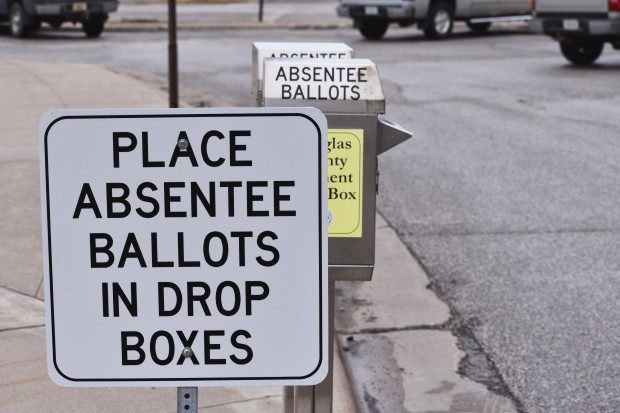
The case comes as scrutiny around election integrity is on the forefront of many voters’ minds going into the 2024 elections, as the presidential race is shaping up to be a rematch of the 2020 election.
It’s also a case that Atiba Ellis, a law professor at Case Western Reserve University School of Law, said was “rare, bordering on unheard of.”
“Ordinarily, election administrators who see flaws in systems raise those flaws and those become the object of legislation,” Ellis said. “But for an election administrator to undertake the act of requesting a fake ballot in order to prove that election fraud can happen is simply unheard of.”
In response to the news of the guilty verdict, Milwaukee Mayor Cavalier Johnson said the decision brought “accountability for a serious error.”
“At the time of Zapata’s removal from the Milwaukee’s Election Commission, I said it does not matter that this might have been an effort to expose a vulnerability that state law created. It does not matter that City of Milwaukee ballots were not part of this. Nor does it matter that there was no attempt to vote illegally or tamper with election results,” Johnson said in the statement. “Fundamentally, the actions were a violation of trust.”
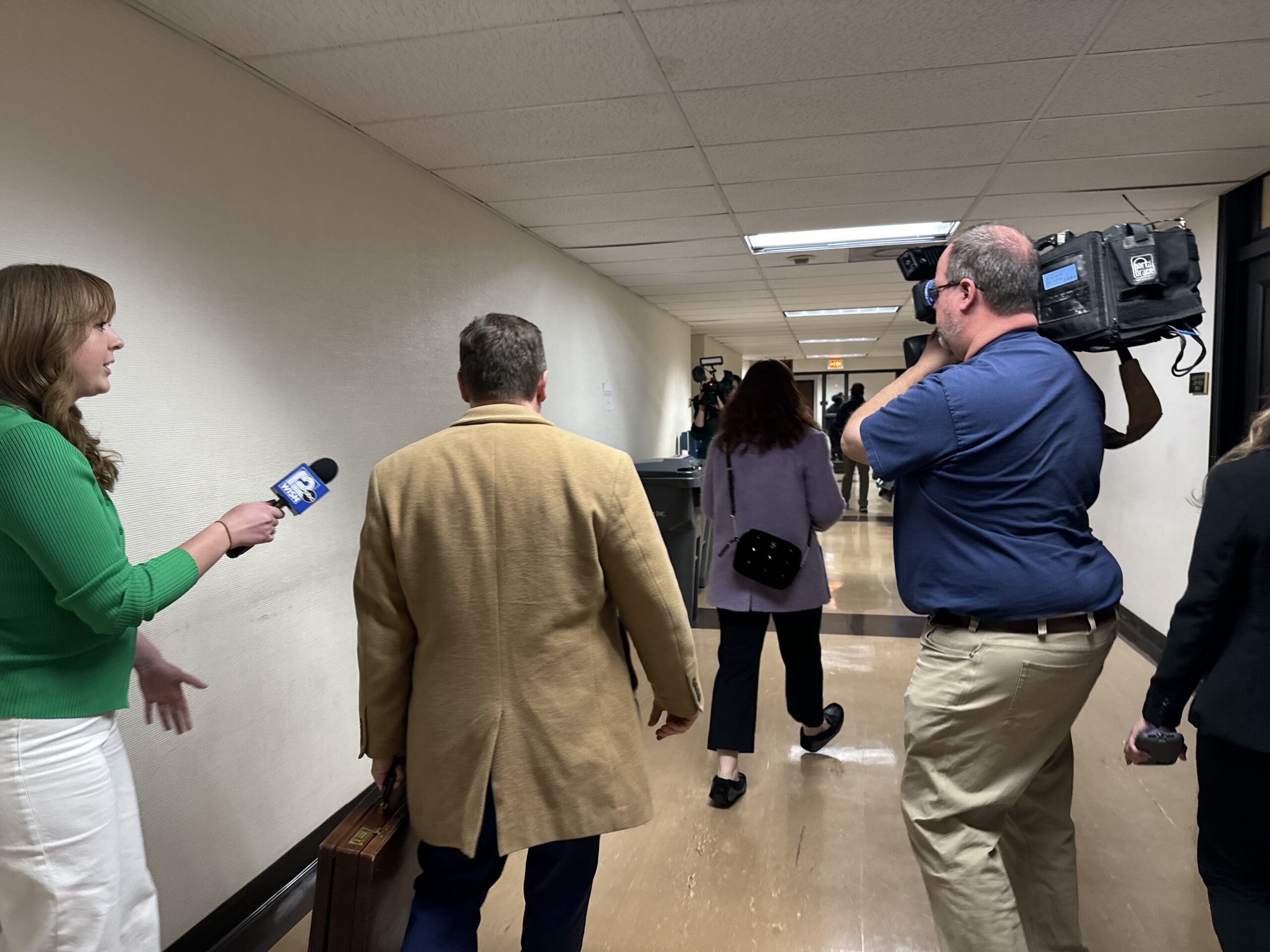
Zapata admitted to act to redirect state lawmaker from fake election conspiracy theories
The fake military ballots were requested through the My Vote Wisconsin website from Zapata’s work laptop on the morning of Oct. 25, 2022, and were mailed by clerks in Menomonee Falls, Shorewood and South Milwaukee. Zapata used her municipal login credentials to access a private Wisconsin database to find Brandtjen’s home address.
The ballots Brandtjen received at her home address were addressed to Holly Brandtjen, Holly Jones and Holly Adams. When the ballots arrived at her home, the lawmaker contacted authorities and the media.
Following news of the incident, the Wisconsin Elections Commission said there are multiple checks in place to ensure fraudulent military absentee ballots are not counted.
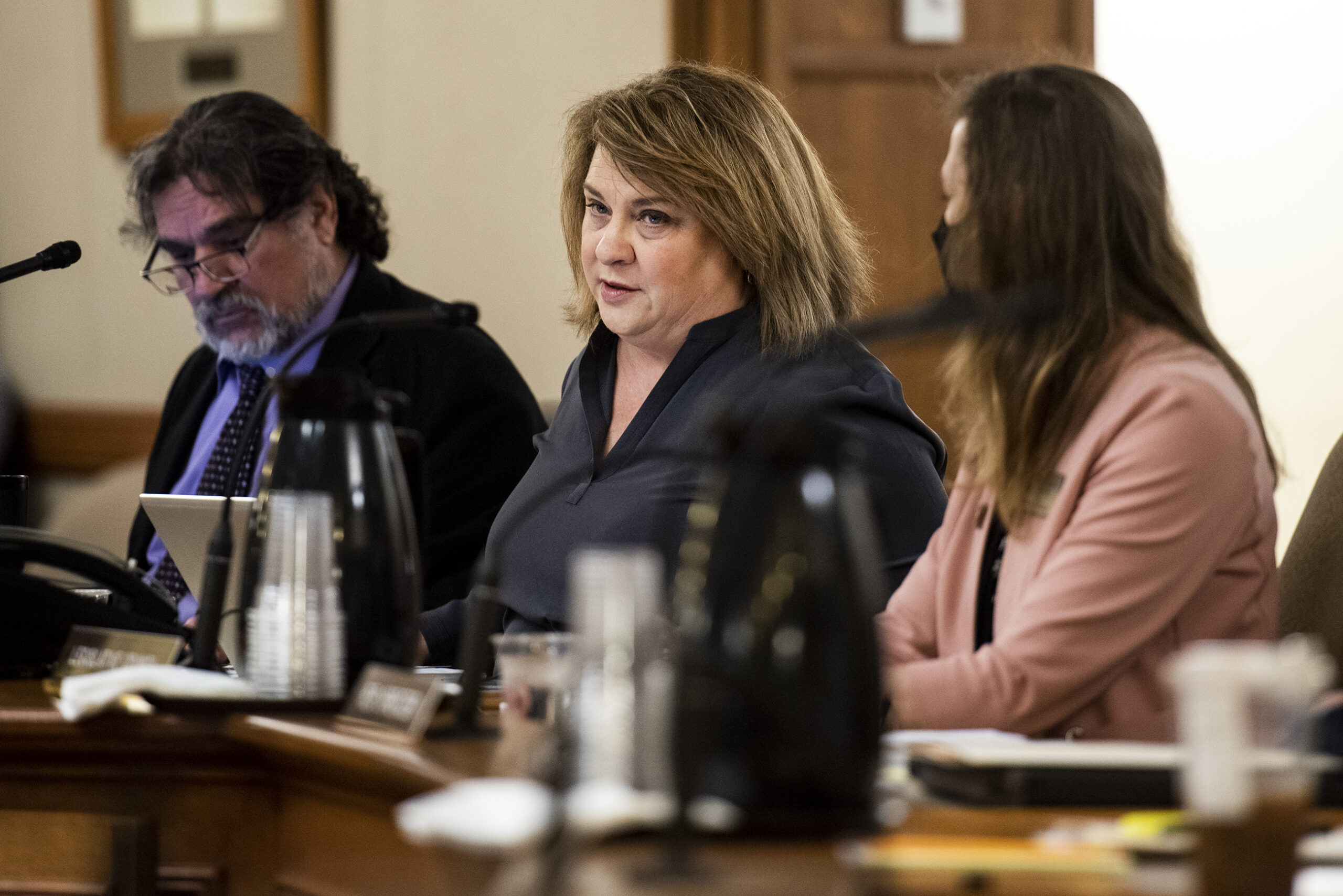
What happened during the trial
On Tuesday, Claire Woodall, the executive director of the Milwaukee Election Commission, testified that her office was facing threats of violence from people who falsely believed the 2020 presidential election was rigged. Woodall said she believes Zapata did the act to “highlight to the conspirators what a real potential security concern would be.”
The jury also listened to audio of an interview between Zapata and investigators on Tuesday. In the recording, Zapata claims she did not have “some manipulative plan” and said she acted because she was “fed up.”

During closing arguments Wednesday morning, Zapata’s defense attorney Daniel Adams again reiterated that his client was acting as a whistleblower and performed the act to highlight a need for change in Wisconsin’s absentee voting system.
“She was a whistleblower, she was showing with the truth, with an action — an imperfect action, but a truthful action — what was going on,” Adams told the jury Wednesday.
Adams said it wasn’t Zapata’s intent for the ballots to be used in an election. Zapata told investigators she sent the ballots to Brandtjen’s home because she believed the lawmaker wouldn’t mail the ballots back and would also bring attention to it.
“There’s a huge flaw here, and if people don’t take it seriously, some nefarious person will do something bad with this flaw in the system,” Adams said. “She (Zapata) wanted to point that out.”
Zapata did not testify during the trial. Neither Adam’s nor Zapata had comment for reporters following the verdict.
However, during his closing argument, prosecutor Assistant District Attorney Matthew Westphal again said Zapata violated the public’s trust as an election official.
“We rely on our election workers to maintain the integrity of our election system,” Westphal told the jury. “Ms. Zapata took a tiny hammer and started chiseling away at that foundation. Instead of helping secure the absentee ballot system, she introduced fraud into that system.”
Westphal said Zapata should have gone through the appropriate channels to report concerns with the military absentee ballot system.
“The appropriate way to raise a concern is to bring forth information. It is not to commit a crime,” Westphal said.
Westphal also said he believed Zapata was acting in her professional capacity as deputy director when requesting the absentee ballots, as she admitted to using her work laptop to access voter information on a private voter database.
Brandtjen did not appear as a witness in the trial
Brandtjen is facing possible criminal charges in a separate case. In February, the bipartisan Wisconsin Ethics Commission recommended felony prosecution against Brandtjen, Trump’s Save America committee and three county GOP arms on allegations of campaign finance violations.
Brandtjen — arguably former President Donald Trump’s strongest ally in the Wisconsin state Legislature and a key proponent of his debunked claims that the 2020 election was stolen in the Badger state — didn’t appear as a witness in the trial, but issued a statement about the case Tuesday.
“If Ms. Zapata had wished to raise concerns about the election process, she could have done so anonymously by contacting appropriate authorities rather than jeopardizing her job and reputation,” Brandtjen said in the statement.
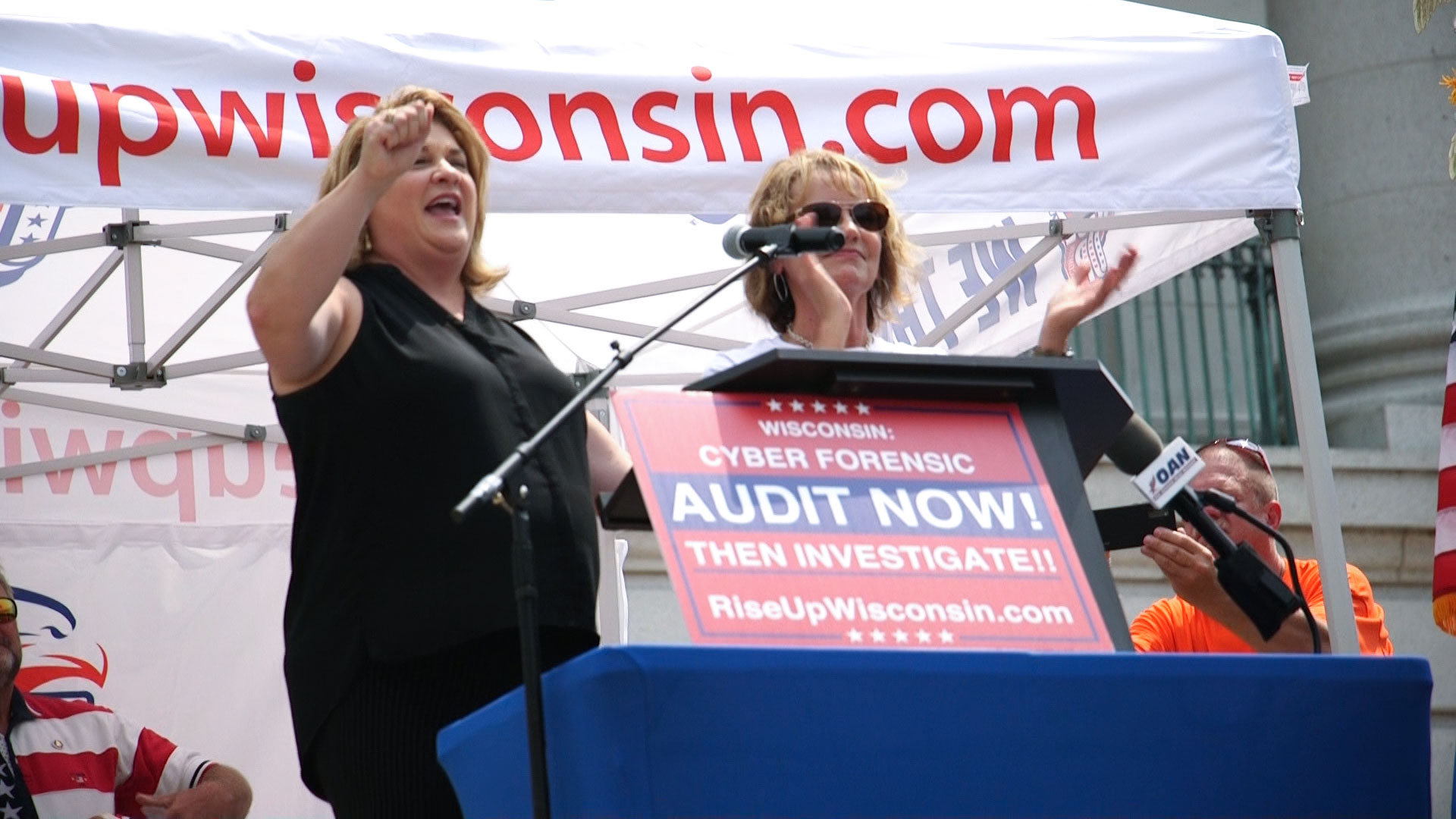
“I cannot speak to Kim Zapata’s intent as I have never spoken with her,” she added.
In her statement, Brandtjen said she reported the voting issue to the Waukesha County Sheriff’s Department.
“Regrettably, neither the Wisconsin Elections Commission nor any investigators have contacted me regarding this matter,” the statement added.
Ellis, the law professor, said more cases like this are popping up across the nation following the 2020 election. A report from The Associated Press found fewer than 475 potential instances of voter fraud out of more than 25 million votes cast in the 2020 election. Ellis said other errors in voting systems can usually be attributed to human error.
“These sorts of issues are always almost simple errors and there’s usually not a kind of intent,” Ellis said. “Most cases where voter fraud has been prosecuted has been usually by political operatives who are trying to make the point that there is a way to game the system.”
In Wisconsin, that includes Harry Wait, who is now facing felony charges for requesting absentee ballots using Vos’ name and address without permission in 2022. At the time, he said he did so to show vulnerabilities in the state’s online voter portal system. Wait, who is a volunteer organizer in the recall effort against Assembly Speaker Robin Vos, R-Rochester, will appear in court in August for an evidentiary hearing.
Wisconsin Public Radio, © Copyright 2025, Board of Regents of the University of Wisconsin System and Wisconsin Educational Communications Board.

